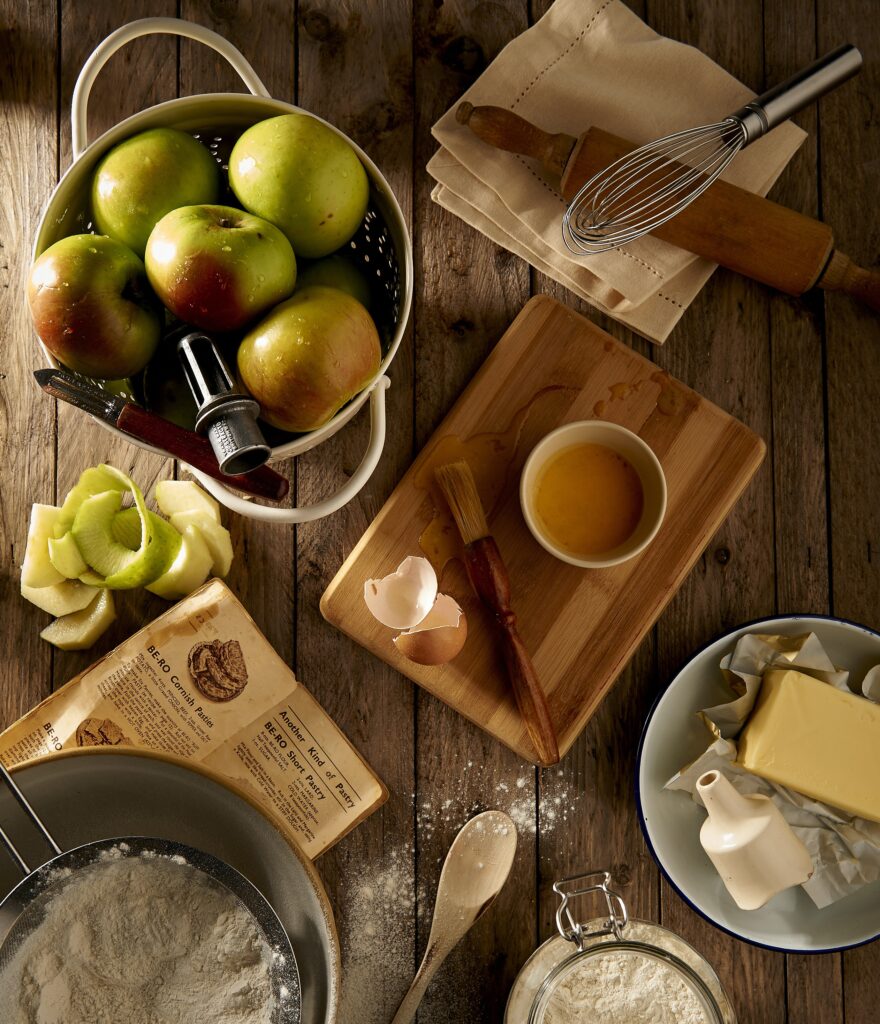If you’re a proud owner of a Cocker Spaniel, you know that choosing the best dog food for your furry friend is crucial for their overall health and happiness. With their sensitive stomachs and specific nutritional needs, it’s important to find the right balance of ingredients that will keep them thriving. In this article, we’ll take a closer look at the top dog food options that are specially formulated to meet the needs of Cocker Spaniels, ensuring they get the best nutrition and taste they deserve.
Nutritional Needs of Cocker Spaniels
Protein Requirements
As a Cocker Spaniel owner, it’s important to ensure that your furry friend is getting the right amount of protein in their diet. Protein plays a vital role in supporting their overall health and wellbeing. Cocker Spaniels are an active breed, and protein helps to build and repair muscles, promote healthy skin and coat, and support their immune system.
When choosing a commercial dog food, look for a product that contains high-quality sources of protein, such as chicken, beef, or fish. It’s generally recommended that adult Cocker Spaniels consume a diet that consists of at least 18-25% protein. Puppies and highly active dogs may require even higher amounts, typically around 22-32% protein.
Fat Requirements
While some may think of fat as a negative component of a diet, it’s actually essential for the health of Cocker Spaniels. Fat provides your furry friend with a concentrated source of energy, helps to support their metabolism, and assists in the absorption of fat-soluble vitamins.
When choosing a dog food, look for one that contains healthy fats, such as omega-3 and omega-6 fatty acids. These can be found in ingredients like fish oil, flaxseed, or chicken fat. Adult Cocker Spaniels usually require a diet that contains at least 8-12% fat, while puppies may need closer to 10-15%.
Carbohydrate Requirements
While protein and fat are essential for a Cocker Spaniel’s diet, carbohydrates also play an important role. Carbohydrates provide energy and assist in proper digestion. However, it’s important to choose high-quality sources of carbohydrates, avoiding fillers and empty calories.
Look for dog foods that contain whole grains, such as brown rice or oats, as well as nutritious fruits and vegetables. While the exact carbohydrate requirements may vary depending on the individual dog, it’s generally recommended that carbohydrates make up around 30-70% of a Cocker Spaniel’s diet.
Vitamin and Mineral Requirements
Just like humans, Cocker Spaniels require a variety of vitamins and minerals to maintain optimal health. These nutrients play a crucial role in supporting their immune system, bone health, and overall wellbeing.
When choosing a dog food, look for options that include a wide range of vitamins and minerals, such as vitamins A, C, E, and B-complex vitamins, as well as minerals like calcium, phosphorus, and zinc. Additionally, it’s worth considering dog foods that are fortified with antioxidants to support a strong immune system. Optimal vitamin and mineral levels will vary depending on your dog’s age, activity level, and overall health, so it’s always a good idea to consult with your veterinarian for personalized recommendations.
Common Health Issues in Cocker Spaniels
Ear Infections
Cocker Spaniels are known for their beautiful, long ears, but unfortunately, these floppy ears are prone to infections. The shape of their ears can create a warm and moist environment, which is the perfect breeding ground for bacteria and yeast. Ear infections can cause discomfort and pain for your furry friend if left untreated.
To prevent ear infections, it’s important to keep your Cocker Spaniel’s ears clean and dry. Regularly check their ears for any signs of redness, discharge, or odor. If you suspect an ear infection, consult your veterinarian for proper diagnosis and treatment.
Obesity
Cocker Spaniels have a tendency to gain weight if not carefully managed. Obesity can lead to a range of health issues, including joint problems and heart disease. As a responsible owner, it’s important to monitor your dog’s weight and ensure they maintain a healthy body condition.
To help prevent obesity in your Cocker Spaniel, ensure they are getting regular exercise and follow a portion-controlled diet. Avoid overfeeding and limit treats to prevent excessive calorie intake. If you’re unsure about your dog’s weight or need guidance on their dietary needs, consult with your veterinarian.
Allergies
Cocker Spaniels can be prone to allergies, which can manifest in various ways, such as skin irritation, itching, and gastrointestinal issues. Allergies can be caused by a variety of factors, including food, environmental allergens, or even flea bites.
If your Cocker Spaniel shows signs of allergies, it’s important to work with your veterinarian to identify and manage the allergens. In some cases, switching to a hypoallergenic dog food may be recommended. Additionally, keeping your dog’s environment clean and minimizing exposure to potential allergens can help alleviate allergy symptoms.
Autoimmune Disorders
Unfortunately, Cocker Spaniels are also prone to certain autoimmune disorders. These conditions occur when the immune system mistakenly attacks healthy cells and tissues in the body. Autoimmune disorders can present in various ways, including skin issues, joint problems, and organ dysfunction.
While proper nutrition cannot cure autoimmune disorders, providing a balanced diet with high-quality ingredients can support your Cocker Spaniel’s overall health and immune system. It’s important to work closely with your veterinarian to manage and treat any autoimmune disorders that may arise.

This image is property of images.unsplash.com.
Choosing the Right Dog Food for Cocker Spaniels
High-Quality Ingredients
When selecting a dog food for your Cocker Spaniel, it’s crucial to choose one that contains high-quality ingredients. Look for dog foods that list whole meats as the first ingredient, such as chicken, beef, or fish. Avoid products that contain fillers, by-products, or artificial additives.
High-quality ingredients provide the necessary nutrients for your dog’s overall health and wellbeing. They are also more easily digestible, which can help prevent stomach issues and improve nutrient absorption.
Protein Source
Protein is a vital component of your Cocker Spaniel’s diet, so it’s important to consider the source of the protein in their dog food. Look for dog foods that contain animal-based proteins, such as chicken, beef, or fish.
Animal-based protein sources provide essential amino acids that are crucial for muscle development, tissue repair, and overall health. Avoid dog foods that rely heavily on plant-based proteins, as these may not provide the same nutritional value for your Cocker Spaniel.
Avoiding Common Allergens
Cocker Spaniels can be prone to food allergies or sensitivities, so it’s important to choose a dog food that avoids common allergens. Common allergens for dogs include ingredients like wheat, corn, soy, and certain meats.
Opt for dog foods that are free from these allergens or consider hypoallergenic formulas that are specifically designed for sensitive dogs. By avoiding potential allergens, you can help prevent allergic reactions and improve your Cocker Spaniel’s overall wellbeing.
Joint Health Support
Cocker Spaniels are an active breed, and their joints can undergo a lot of stress over time. To support joint health and prevent issues like arthritis, consider dog foods that contain ingredients like glucosamine and chondroitin. These ingredients help to lubricate joints and promote cartilage health.
Additionally, omega-3 fatty acids, commonly found in fish oil, can also provide anti-inflammatory benefits for joint health. The right combination of joint-supporting ingredients can help your Cocker Spaniel stay active and mobile throughout their life.
Omega-3 Fatty Acids
Omega-3 fatty acids are not only beneficial for joint health but also have a positive impact on your Cocker Spaniel’s skin and coat. These essential fatty acids promote a healthy and shiny coat while reducing itchiness and dryness.
Look for dog foods that contain fish oil, flaxseed, or other natural sources of omega-3 fatty acids. By incorporating these into your Cocker Spaniel’s diet, you can help maintain their beautiful coat and minimize skin issues.
Texture and Size of Kibble
While not a nutritional requirement, it’s important to consider the texture and size of the kibble when choosing a dog food for your Cocker Spaniel. Cocker Spaniels can be prone to dental issues, so selecting a kibble that promotes dental health is essential.
Look for dog foods that have a crunchy texture, as this can help to remove plaque and tartar buildup on your dog’s teeth. Additionally, smaller kibble sizes are generally easier for Cocker Spaniels to chew and can help prevent choking hazards.
Best Commercial Dog Food Brands for Cocker Spaniels
Royal Canin Cocker Spaniel Breed Health Nutrition
Royal Canin Cocker Spaniel Breed Health Nutrition is specifically formulated to meet the unique nutritional needs of Cocker Spaniels. It contains a balanced blend of protein, fat, and carbohydrates to support their overall health. This dog food also includes ingredients to support skin and coat health, as well as ingredients that promote good digestion.
Hill’s Science Diet Adult Sensitive Stomach & Skin Dog Food
Hill’s Science Diet Adult Sensitive Stomach & Skin Dog Food is a great option for Cocker Spaniels with sensitive stomachs or skin issues. This formula is made with easily digestible ingredients that help support healthy digestion and promote a soft and shiny coat. It contains a precise blend of vitamins, minerals, and antioxidants to support immune health as well.
Wellness CORE Grain-Free Original Recipe
Wellness CORE Grain-Free Original Recipe is a grain-free dog food that provides a high level of animal-based protein. It contains a combination of turkey and chicken to support lean muscle mass, as well as omega-3 fatty acids for healthy skin and coat. This dog food also includes a blend of probiotics to support digestive health.
Merrick Grain-Free Real Chicken & Sweet Potato Dog Food
Merrick Grain-Free Real Chicken & Sweet Potato Dog Food is a delicious option for Cocker Spaniels that enjoy the taste of real chicken. This formula is grain-free and contains high-quality ingredients like deboned chicken and sweet potatoes. It provides a balanced blend of protein, fat, and carbohydrates to support your Cocker Spaniel’s overall health and wellbeing.
Blue Buffalo Wilderness Grain-Free Dog Food
Blue Buffalo Wilderness Grain-Free Dog Food is a popular choice for Cocker Spaniels with grain sensitivities. This formula features real chicken as the first ingredient and is packed with protein to support your dog’s active lifestyle. It does not contain any poultry by-product meals, corn, wheat, soy, or artificial preservatives.

This image is property of images.unsplash.com.
Homemade Dog Food for Cocker Spaniels
Consult with a Veterinarian
Before considering a homemade diet for your Cocker Spaniel, it’s important to consult with your veterinarian. They can assess your dog’s specific nutritional needs and ensure that the homemade diet provides all the necessary nutrients.
Balancing Nutritional Requirements
Creating a balanced homemade diet for your Cocker Spaniel requires careful consideration of their nutritional requirements. This includes incorporating the right balance of protein, fat, carbohydrates, vitamins, and minerals. Working with a veterinary nutritionist or using reputable resources can help you create a balanced recipe.
Cooking Methods
When preparing homemade dog food for your Cocker Spaniel, it’s important to follow proper cooking methods to ensure the safety of the food. Raw diets carry a risk of bacterial contamination, so it’s generally recommended to cook all ingredients thoroughly. Avoid using ingredients that are toxic to dogs, such as onions or garlic.
Choosing the Right Ingredients
Selecting the right ingredients is crucial when preparing homemade dog food. Focus on using high-quality sources of protein, such as lean meats like chicken or turkey, as well as healthy fat sources like fish oil or coconut oil. Incorporate a variety of fruits and vegetables to provide essential vitamins and minerals.
Additionally, incorporating whole grains like brown rice or quinoa can provide a good source of carbohydrates. Keep in mind any specific dietary restrictions or allergies your Cocker Spaniel may have when selecting ingredients.
Recipe Ideas
Here is a simple homemade dog food recipe to get you started:
- 2 cups of cooked chicken (shredded or diced)
- 1 cup of cooked brown rice
- 1/2 cup of cooked vegetables (carrots, peas, or green beans)
- 1 tablespoon of fish oil or coconut oil for added omega-3 fatty acids
Mix all the ingredients together in a bowl and store in an airtight container in the refrigerator. The amount of food needed will depend on your dog’s size, age, and activity level. Be sure to monitor your Cocker Spaniel’s weight and adjust the portion sizes accordingly.
Feeding Tips for Cocker Spaniels
Portion Control
Maintaining proper portion control is essential for managing your Cocker Spaniel’s weight and overall health. Overfeeding can lead to obesity and associated health issues, while underfeeding can result in nutritional deficiencies and low energy levels.
Follow the recommended feeding guidelines provided by the dog food manufacturer, but keep in mind that individual dogs may have different needs. Monitor your Cocker Spaniel’s body condition and adjust the portion sizes as needed to keep them at a healthy weight.
Feeding Schedule
Establishing a regular feeding schedule can help promote healthy digestion and prevent overeating. Dividing your Cocker Spaniel’s daily food allowance into two or three meals throughout the day is typically recommended.
Puppies may require more frequent feeding intervals due to their smaller stomach capacity, while adult Cocker Spaniels can usually thrive on two meals per day. Consult with your veterinarian for specific feeding recommendations based on your dog’s age, size, and activity level.
Avoiding Table Scraps
While it may be tempting to share your meal with your Cocker Spaniel, it’s important to avoid table scraps. Human food is often high in fat, sodium, and unnecessary seasonings, which can be harmful to dogs.
Feeding table scraps can lead to weight gain, digestive upset, or even toxicity if certain foods are consumed. Stick to a balanced and nutritionally complete dog food to ensure your Cocker Spaniel gets all the necessary nutrients without any potential health risks.
Water Availability
Your Cocker Spaniel should have access to fresh water at all times. Ensure that your dog’s water bowl is filled with clean water and check it regularly throughout the day. Dehydration can lead to serious health issues, so it’s important to encourage proper hydration for your furry friend.

This image is property of images.unsplash.com.
Transitioning to a New Diet
Gradual Transition
When switching your Cocker Spaniel to a new diet, it’s important to do so gradually to avoid digestive upset. Sudden changes in diet can cause stomach upset, diarrhea, or other gastrointestinal issues.
Start by mixing a small amount of the new dog food with the current food and gradually increase the proportion of the new food over several days. This gradual transition allows your Cocker Spaniel’s digestive system to adjust to the new ingredients more easily.
Monitoring Digestive Health
During the transition period, monitor your Cocker Spaniel’s digestive health closely. Keep an eye out for any signs of stomach upset, such as vomiting, diarrhea, or decreased appetite. If these symptoms persist or worsen, consult with your veterinarian for guidance.
Potential Allergic Reactions
Some dogs may have allergies or sensitivities to certain ingredients. If you notice any signs of an allergic reaction, such as itching, redness, or gastrointestinal upset, it may indicate that your Cocker Spaniel is not tolerating the new diet well.
In such cases, consult with your veterinarian to determine the potential allergen and make appropriate dietary adjustments. They may recommend a different dog food or a hypoallergenic formula to address your dog’s specific needs.
How to Assess if the Food is Working for Your Cocker Spaniel
Healthy Weight Management
One of the key indicators that the food is working well for your Cocker Spaniel is maintaining a healthy weight. Regularly assess their body condition by running your hands along their sides. You should be able to feel their ribs without them being overly prominent, and their waistline should be visible.
If your dog is maintaining a healthy weight or losing weight if needed, it’s a good sign that the food is providing the right balance of nutrients and portion control.
Shiny Coat and Healthy Skin
Another sign of a well-balanced diet is a shiny and healthy coat. A dull or dry coat may indicate nutritional deficiencies or poor diet. If your Cocker Spaniel’s coat is lustrous and their skin is free from issues like dryness or excessive itching, it’s a positive sign that the food is working well for them.
Good Digestive Health
A well-functioning digestive system is crucial for your Cocker Spaniel’s overall wellbeing. A healthy diet should promote regular bowel movements that are firm and well-formed. If your dog is experiencing frequent diarrhea, constipation, or other digestive issues, it may indicate that the food is not agreeing with them.
Improved Energy Levels
A balanced diet should provide your Cocker Spaniel with the energy they need to lead an active lifestyle. If your dog has improved energy levels, seems alert and engaged, and is able to keep up with their daily activities without excessive fatigue, it can be an indication that the food is meeting their energy requirements.
Overall Well-Being
Assessing your Cocker Spaniel’s overall well-being is important to determine if the food is working for them. Look for signs of a happy and content dog, such as a good appetite, healthy weight, bright eyes, and a playful demeanor. If your dog is thriving, it’s likely that the food is providing the necessary nutrients for their optimal health.
Conclusion
Feeding your Cocker Spaniel a nutritious and balanced diet is crucial for their overall health and wellbeing. Understanding their unique nutritional needs and common health issues can help you make informed decisions when choosing a dog food.
Whether you opt for a premium commercial dog food or a carefully prepared homemade diet, it’s important to prioritize high-quality ingredients, appropriate protein, fat, and carbohydrate levels, and the specific needs of your individual dog.
Monitor your Cocker Spaniel’s weight, coat, digestion, energy levels, and overall well-being to assess if the food is working for them. Consult with your veterinarian for personalized advice and guidance to ensure that your canine companion receives the best nutrition possible. With the right diet, you can help your Cocker Spaniel live a long, healthy, and happy life.
